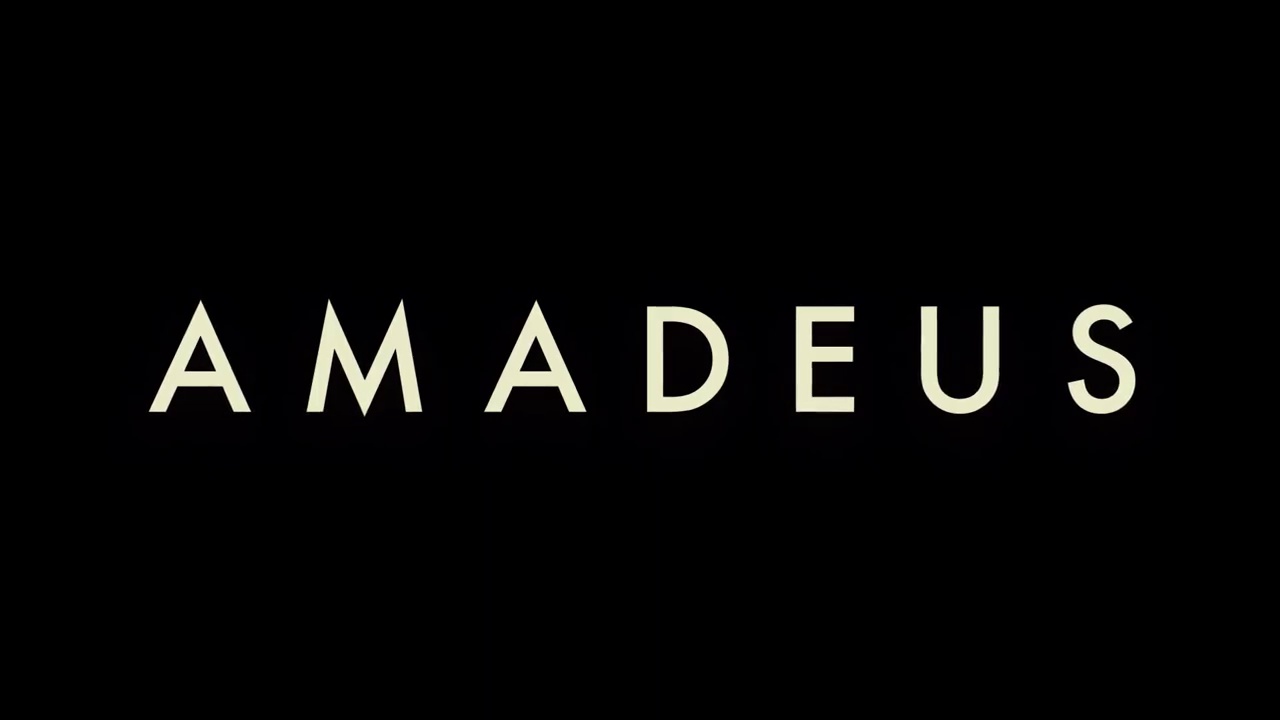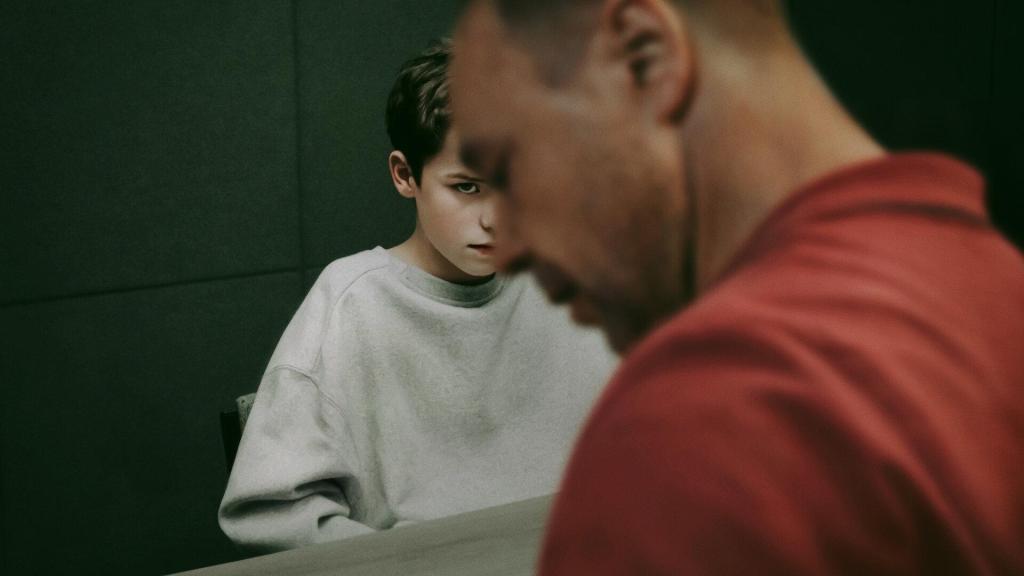
The British drama Dalgleish, which is in its second season, has something special about it. With six episodes per season, two episodes and one case, it unfolds a reasoning world with numerous characters.

"Dalglish" Season 2 Poster
The protagonist DCI Adam Dalglish (played by Bodie Cavill) is a senior police detective in Scotland Yard, and the role created by British novelist PD James spent his entire career (1962-2008). Low-key and gentle, Dalglish is a British gentleman and a poet. But he never made any hints related to poetry in the process of investigating the case.
He's a poet, because we're told he is, and he's a pretty good one, nominated for an international award, and booksellers are giving him a world tour. His poetry comes from the actor's melancholy eyes. Dalglish, tired of all the ugliness he's seen in human nature, finally explodes at the suspect in the last case. He was so afraid of the abyss that he dared not let go of his job as a police officer and plunge into the world of poetry. Although the former is full of demons, the latter is the territory of elves. He would rather stay with the demons than cut the rope, lest he fall into the bottomless abyss where the elves dance.
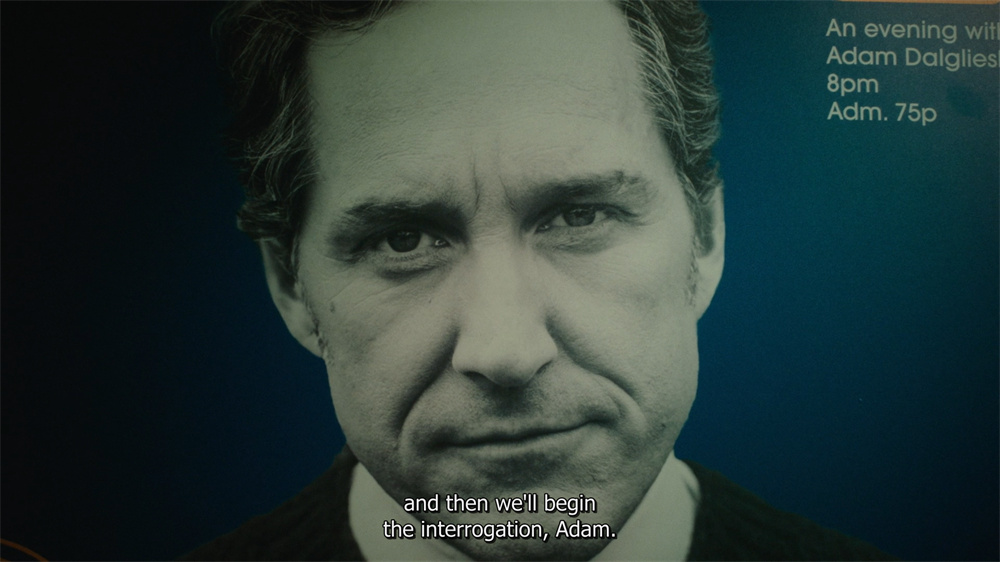
DCI/Poet Adam Dalglish
"Dalglish" is clear to the eyes and ears. It likes to close up people, zooming in on their expressions. Many times, the audience stares into a pair of blue eyes, watching them swivel from side to side, alternating flashes of horror, bravado, and resentment. The actress's face is like a piece of exquisite washi paper, which can be broken with a poke.
The director is very good at choosing actors. Actors are not just pawns for this show to deduce the reasoning plot, they are the mystery itself. The human heart is the hardest to understand. The biggest difference between reasoning works and real cases is that reasoning novels give people certainty. No matter how incredible the case is, within the given length, there is always an answer waiting for you at the end. The motive of the murderer will be clearly explained, and the secrets of each character will be explained one by one. Mysteries are created to unravel mysteries, to provide reassuring certainty in a chaotic world.
"Dalglish" was different. Structurally speaking, it belongs to the British reasoning drama of the "Detective Vera" (Vera) school. The police detectives follow the clues, and various characters appear on the stage. Everyone has something to do with the murder. They hide the truth, confuse the public, shirk responsibility, and often grieve. Although there may be only one murderer, this group of people is like the princes in Grandma's "Murder on the Orient Express", everyone stabbed the dead. Then again, every dead person in season two wasn't a lamb. They are thorns in the eyes of those around them, and in another universe, they may also be the ones who shoot arrows to hurt people.
This play pays homage to the complex psychology of human beings. To what extent, it leaves a lot of room for imagination for the character's psychology, sometimes hiding the murderer's motives, and sometimes leaving a certain character's psychology blank. There are indications that what the actors have shown is just the tip of the iceberg. Because of the knowledge of the huge existence underwater, "Dalglish" can be watched with peace of mind without having to think about fast forwarding.
One criticism of the deluge of psychological crime dramas is that criminal minds are always laid out for the audience. All the minutiae have a one-to-one correspondence with the psychology. The screenwriter is full of confidence, thinking that the human heart is like this. No matter how long the scroll is, it is only a picture of Qingming Riverside, and the secrets are all on the paper.
In real crimes, too many murderers die without revealing their true motives. Because the motive is too dark to embarrass myself; or it is so obscure that I can’t even detect it, trying my best to fabricate one version after another of the motive, convincing myself to believe it, and bury the real motive (perhaps just a flash of thought) forever.
Murder is fascinating. Sometimes it is placed on the same level as art because it is full of passion, thought, death and hidden human psychology, each of which can stir up emotional waves just like art.
In the second case of the second season, the murderer's motive was not explained from beginning to end. Dalglish's deputy Kate (Caris Peel) knows it's him, and so does the audience. They know each other well, because this character looks very perverted. The question is, why? Why did he kill the aunt who took him in, the barrister won the case for him and was acquitted, and he wanted to kill the lawyer again? The details are there, few, and test the viewer's abilities.
If you know enough about the dark side of human nature, the screenwriter can piece together his motives without explaining anything. These motives happen to be the last thing the murderer himself wants to say. The unfortunate combination of his tragic life experience and super self-esteem, low self-esteem and conceit made him unable to tolerate any contempt for himself. A barriered personality, a barrier that spits out bubbles with lies. So vulnerable, so extra sensitive. Anyone who dares to expose a lie, or doubts it even slightly, must die.
This is my interpretation as a viewer, and you will have your own interpretation. That's where the fun lies, far better than the writer sending a character to read these interpretations to me.
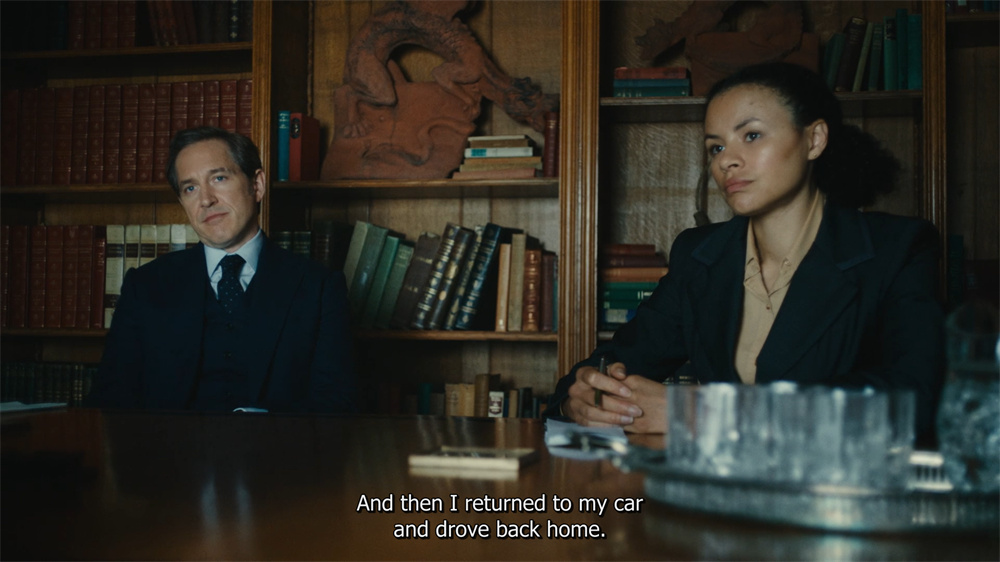
Dalglish and Kate
There are many more such mysteries in the three stories of the second season. Not necessarily a hidden motive. Or it could be the first case, where beauty Dominic (Margaret Clooney) stands aloft, lip-smacking her lover who's confessing to Dalgliesh. She called him a fool and warned him "don't say it". What part did she play in this emotional murder? This beauty, just like Monica Bellucci in "The Beautiful Legend of Sicily", is too dazzling, incompatible with the mediocre and moral environment, and hostile to each other.
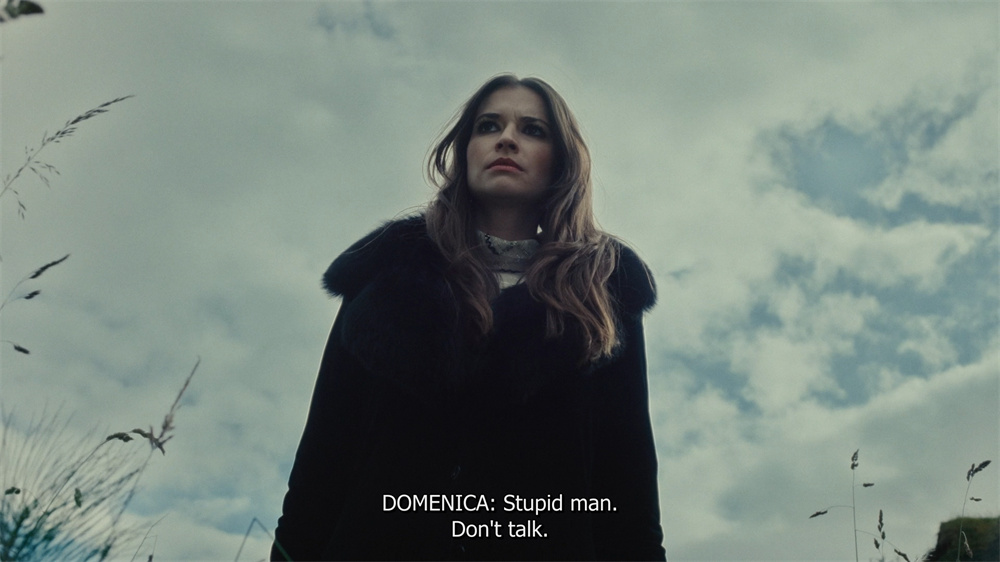
Beauty Dominic
Caroline (Michelle Duncan), the heiress and headmistress of the girls' school in the third story, also makes people unable to take their eyes off. In every chain, she is an important link. In her various roles—headmaster, older sister, leading member of the sex club—she is genuinely emotional; she flirts with Dalgliesh. But it is difficult to judge which tear of hers comes from the heart and which tear is forced by the situation.
Growing up under the oppression of the two strong female elders around her, Carolyn learned from them and became a fierce paper tiger. Those two real strongmen were unrepentant, tough to the end, and openly despised the weakness and uselessness of the younger generation. Caroline's own growth can be inferred from the brief encounter between Caroline and the female students. A shudder signaled that her defenses were about to collapse.
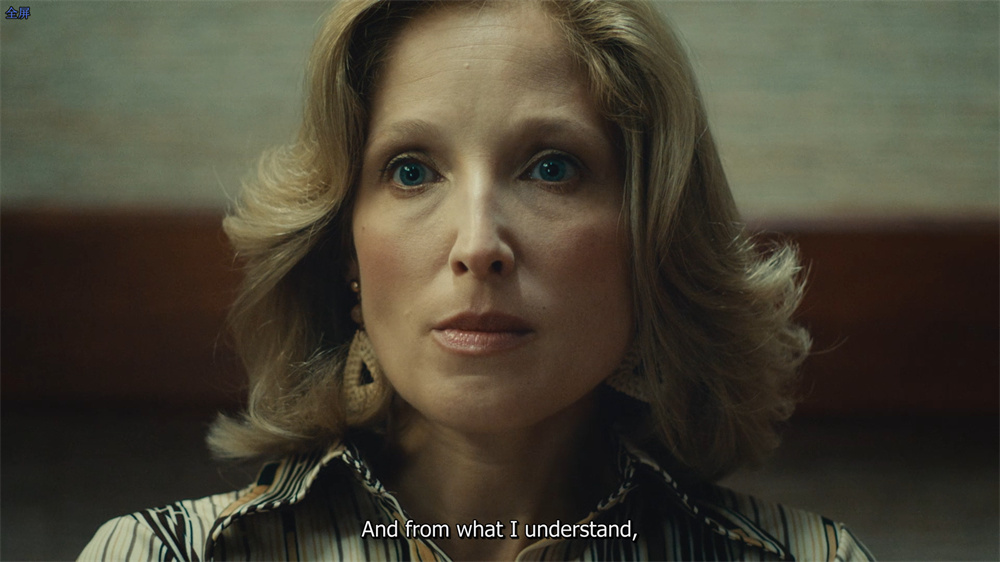
Heiress/Heiress Caroline
The little girl in the first story wanted to use witchcraft to put people to death. She was so innocent that when she learned of the death of the object of the spell, she thought she was the murderer. Her sincere affection for her father and the evil in her bones exist in the same person. The little girl's triangular face resembles a praying mantis, making people pity her and fear her at the same time.
The play also has an undertone that points to the anguish of the overall environment. The victims of each case are aliens in their own environment. They challenge authority, rules or ideology and are hated by those around them long before they are killed. In every story, there are also one or two characters who are about to lose their property and tremble in fear of the impending rain.
The middle-class society depicted in "Dalglish" is full of insecurity. Everyone works hard to keep what they have, and is keen to exclude people who are not themselves. On the whole, they are hypocritical, vulgar, and suffocating. The only object of Dalglish's gaffe is Caroline, the epitome of this type of person. As for whether the factors that caused him to lose self-control include Caroline's attraction to him, we can only feel the violent fluctuations of emotion in the eyes of Kate who admires Dalglish.
As for the case itself, it is not very exciting. Ordinary containers, with the above undercurrents, can also make a bowl of fine wine.
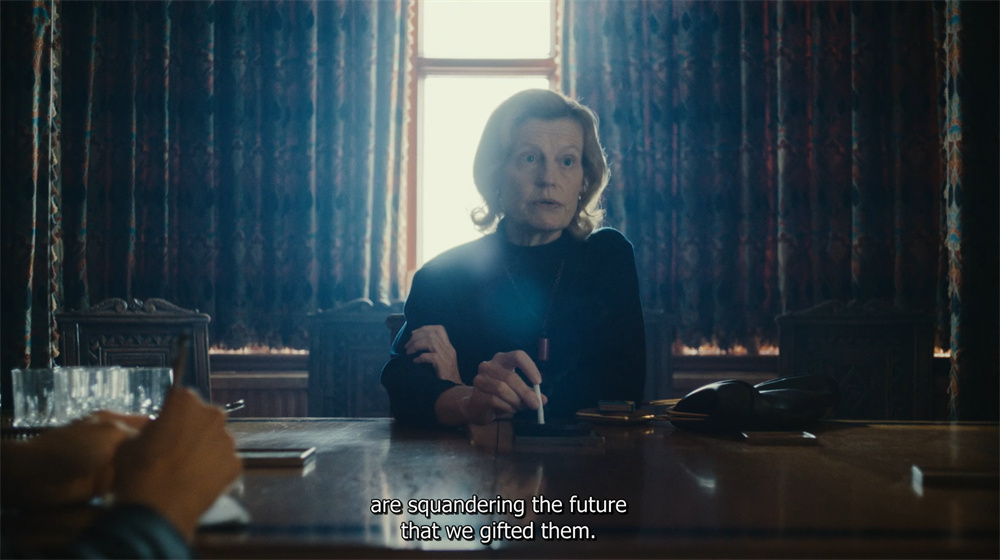
"The (weak) younger generation squandered the future we promised them."
